
Tag Archives Soil

Former pesticide factory goes under the dome
An inflatable cover the size of three football fields is designed to keep odour under wraps

Reading soil tests key for proper nutrient use
The devil is in the details when it comes to nutrient application, meaning there is no silver bullet, just lots of hard work
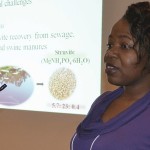
Struvite from manure safer in canola seed row
Manitoba Soil Science Society serves up a heaping helping of new research
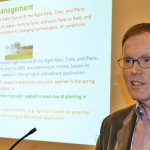
Four Rs keep the regulators at bay, MSSS hears
Right source, rate, time and place are the best guides for staying on the straight and narrow
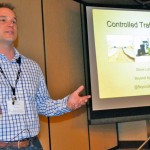
Is the freeze-thaw effect a myth?
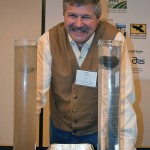
Healthy soil the key to healthy profits
Look beyond ‘bench-top chemistry’ in evaluating soil health, urges soil microbiologist
Dry soil a concern for some on the Prairies
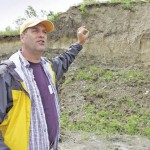
National soil science meeting meets Manitoba mud
A look back in time on Manitoba's escarpment — and a vision of what the future could be
Dale and Caroline Steppler’s farm on the Manitoba Escarpment was shaped by glaciers, but today the challenge is keeping nutrients from running down to Lake Winnipeg
In an abandoned shale pit a busload of muddied-shoed soil scientists from across Canada and beyond peer back millions of years into the geological history of this part of the Manitoba Escarpment west of Miami. Marine dinosaur fossils are routinely discovered nearby in the bentonite clay formed from prehistoric volcanic ash. They once swam inManitobans helping North Korean farmers
Manitobans with expertise in zero till and soil health are helping farmers increase productivity in the isolated nation
When it comes to North Korea, agriculture may not be the first thing that pops into people’s minds. But for the Mennonite Central Committee (MCC) it’s been front and centre for the last five years. The Winnipeg-based organization has been providing farmers in the Democratic People’s Republic of Korea with assistance with soil conservation and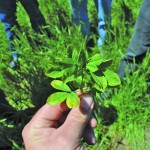
White spots speak volumes about alfalfa’s needs
Alfalfa can pull down its own nitrogen from the atmosphere, but can’t conjure up phosphorus, potassium, sulphur, and boron out of thin air
Alfalfa isn’t a plant that complains a lot, but white spots on its leaves are a clear plea for more potash. After poking around in the field surrounded by whispering poplars at the recent Hay Day tour near Neepawa, provincial soil fertility specialist John Heard pointed out a shining example of “full-blown potassium deficiency.” Farmers

